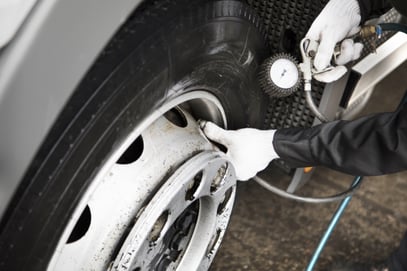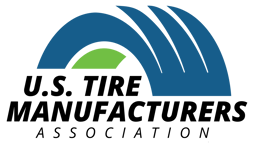Have you reviewed your Tire Program, lately? In this two part Blog Series we will provide tips on how to properly maintain your tires to ensure your drivers are safe!
The U.S. Tire Manufacturers Association (USTMA) will be promoting its yearly consumer awareness campaign, National Tire Safety Week, on June 27 – July 3, 2022. This annual initiative aims to spread awareness of the importance of proper tire care and maintenance.
Did you know that tire cost is the second-highest expense within a fleet’s maintenance program?
Managing the tire program can be a daunting task for fleet managers. Aside from being challenging to maintain the program, it is extremely expensive to have an “automated” system that will record the positions of all tires, tread depths, tire pressures, age, and condition. This results in having a dedicated technician manually track all that information or hiring an outside vendor at an additional cost.
 Considering all the above tasks, how quickly will your tires lose air pressure? Studies have shown that a tire can lose up to one pound of air pressure per month depending on the time of the year, the area in which your equipment is domiciled, and the type of hauling your company is doing i.e., regional, city work or long haul.
Considering all the above tasks, how quickly will your tires lose air pressure? Studies have shown that a tire can lose up to one pound of air pressure per month depending on the time of the year, the area in which your equipment is domiciled, and the type of hauling your company is doing i.e., regional, city work or long haul.
Underinflation is the top cause of damaged tires. Air pressure loss will prevent excessive heat build-up and can destroy a tire casing, causing premature scrapping. These incidents can cause roadside blowouts that result in a loss of driver productivity, customer dissatisfaction and add unnecessary costs. Roadside service typically starts at $500 for the initial call, plus the expense of a new tire, which can range from $300-$800 depending on the position.

- Get drivers involved, show them how important proper daily Pre & Post trip inspections are, and that “thumping” a tire is not the proper way of checking a tire.
- Some fun ways to get your drivers to participate are:
- Create a contest for drivers where they inflate and under inflate several tires and then “guess” the inflation pressure by “thumping". and the driver within 1PSI wins!
- Provide tire pressure gauges to each driver and/or each truck and provide training on usage
- Calibrate tire pressure gauges each PM
- Enforce tire audits are performed AFTER PMs periodically
- Establish a monthly tire pressure check sheet of units domiciled at your location
- Pick one technician each month to do tire pressure check on all units







